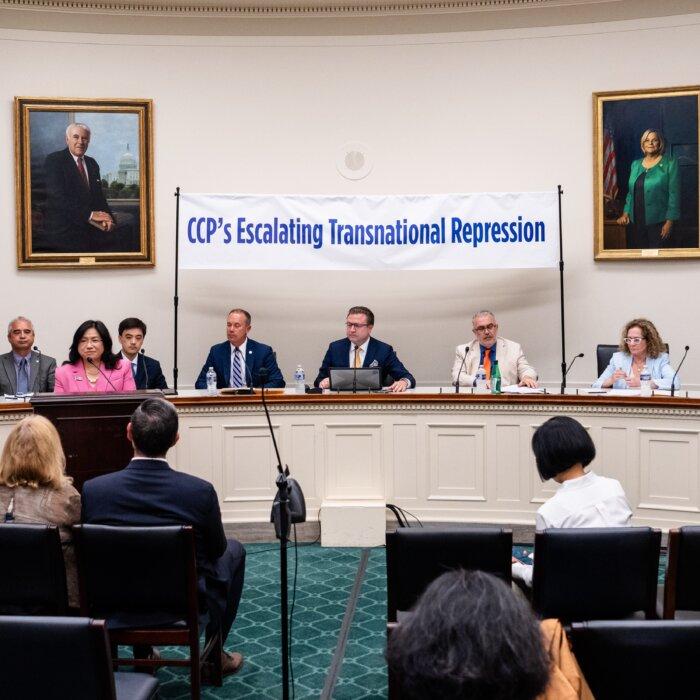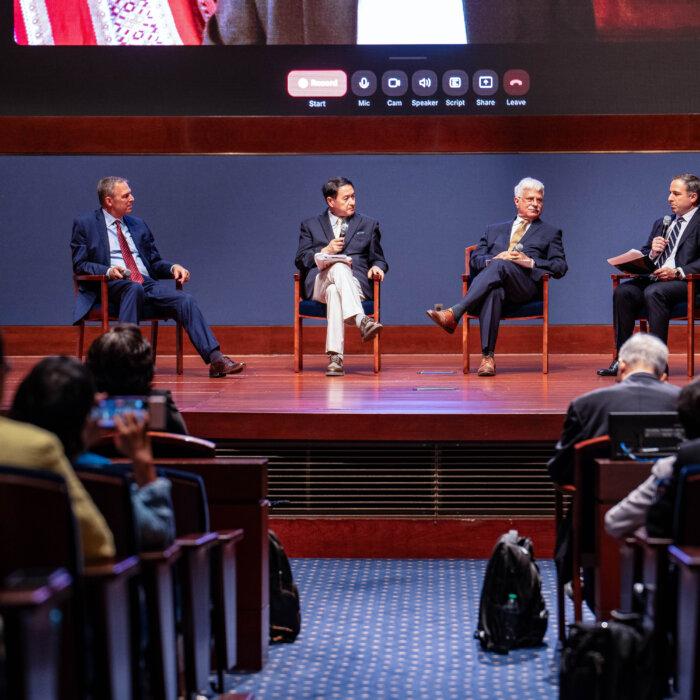WASHINGTON—A whistleblower silenced, a vial of biological material secretly sent to China, a pandemic spilled out.
In a country where the Chinese Communist Party holds onto power at any cost and covers up truth with chilling speed, ordinary families find themselves thrust into the center of an invisible war that knows no rules or bounds, one that the regime wages worldwide.
Inspired by real-world events in the early days of the COVID-19 pandemic, Canadian filmmaker Ma Yan presents a story of freedom and survival, following a respected Canadian virologist, Dr. Jim Conrad, who is forced to make an unthinkable choice between stealing national secrets from his homeland or endangering his loved ones in a country where he has built his second home.
“To win this war without ever firing a shot, that’s what unrestricted warfare is,” he told The Epoch Times.
He said the film is “absolutely worth your time.”
“It moves very quickly. But remember,” what it shows is “just the tip of the iceberg.”
While people traditionally think of war and peace in black and white terms, he said, the Chinese regime looks at the gray zone, weaponizing everything from schools to one’s next-door neighbors to achieve its goals.

In the film, espionage, media disinformation, and blackmail are some of the tactics on display as the regime plots a biowar following an accidental lab leak.
Ma said that he intended for the film to be a warning to audiences. “We need to prepare for the worst, right?” he told The Epoch Times.
“Does the Party leader intend to release the virus globally to infect the whole world? Maybe, maybe not. But under that system, it’s very easy to get out of control. They will weaponize whatever they can to use it for their political purpose.”
Producer Sophia Sun had a personal brush with Chinese spycraft efforts during the 1990s.
Sun had graduated with high honors as the top student of her school. After she joined a state-linked company in Shanghai that oversaw representative offices of Western businesses in China, three separate national security agencies approached her, asking her to eavesdrop on the foreign firms.
They contacted her regularly, taking down what intelligence she had gathered and asking if she had any financial needs they could help with.
Her experience was part of the inspiration for the character Sophie Wen, who remains “blind to the dark side of the party” until a personal tragedy shakes her awake, Sun told The Epoch Times.
Sun said she had enthusiastically joined the Chinese Communist Party in college, seeing it as an honor.
“You are selected because you have good grades, you are well-behaved, you are capable,” she said. “They pretend to mean well and give you all kinds of opportunities so that you feel like you are something.”
It’s only once you’re deep in a scheme that you “realize that what they ask for are all the things you are not supposed to do,” she said.
Making the film wasn’t easy. Ma’s family members in China faced harassment from local officials during the production, with one losing their salary. Ethnic Chinese actors were also reluctant to appear even in the background for fear of retaliation in China.

Korean Canadian actress Uni Park, who portrays antagonist Gen. Chen Wei, said the film opened her eyes to how Party mechanisms enslave everyone from the top down.
At one point, the film flashes back to Chen’s girlhood during the Cultural Revolution, to a moment when her mother denounced her father in front of her and told her to be loyal to the Party.
Chen survives physically, but she’s the “walking dead,” “a puppet with no soul,” Park told The Epoch Times. And the Party, “the only thing in her whole life she worked for, faithfully and diligently,” would eventually cast her off, like a “used-up tool.”
Ultimately, Ma said, the film is about “how people can make right choices in a very difficult situation.”
Park agrees. Chen represents “an example of what happens when one’s innocence, loyalty, and love have been stolen,” she said during a panel discussion prior to the screening.

“She has become a weapon shaped by a regime that understands how to exploit grief, fear, and loyalty for her country. Her true identity was stolen, like many others. And that brings me to the heart of why this story matters,” she said.
By sharing the film, Park said, she hopes “we can begin to build more compassion, courage, and empathy for those who cannot yet speak for themselves.”







